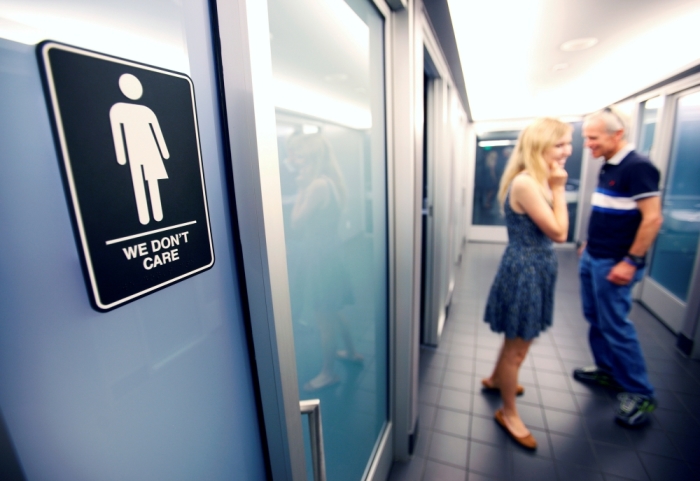Student Sues School District for Allowing Girl to Undress in Boys' Locker Room

A high school student in Pennsylvania and his parents have filed a federal lawsuit against a local school district, claiming that its policy of allowing a girl who identifies as a boy to access the boys' locker room violates his privacy rights.
The lawsuit was filed in the U.S. District Court for Pennsylvania's Eastern District on Tuesday against the Boyertown Area School District by a student referred to by the pseudonym "Joel Doe" on the grounds that the district intentionally violated his right to bodily privacy.
The lawsuit explains that Doe was changing in the gym locker room last October before his physical education class when he saw a female student wearing a bra also in the locker room. The school district's policy allows for the transgender student, who recently began the process of transitioning from female to male, to access locker rooms and bathrooms consistent with the student's chosen gender identity.
"This policy needlessly subjects Doe to the risk that his partially unclothed body will be exposed to the opposite sex and that he will be exposed to a partially clothed person of the opposite-sex, as actually occurred when the policy was first implemented," the lawsuit states.
The lawsuit alleges that the school district "secretly authorized a student of the opposite sex to have unrestricted access to enter and use boys' private facilities" without informing other students and parents.
"Plaintiff has experienced embarrassment and humiliation, both in terms of being viewed and viewing a student of the opposite sex in a state of undress and because of the stigmatization and criticism he received from other students and adults, fueled by the administration's policy and actions," the lawsuit reads. "He also fears the future embarrassment of meeting students of the opposite sex in the bathroom when simply relieving himself."
Because of the situation, the plaintiff "now avoids using the restroom during the school day because of the ongoing risk of having his privacy violated."
The student and his family are being represented by the Alliance Defending Freedom and the Pennsylvania-based firm Independence Law Center.
"No school should rob any student of his legally protected personal privacy," ILC Chief Counsel Randall Wenger said in a statement. "We trust that our children won't be forced into emotionally vulnerable situations like this when they are in the care of our schools because it's a school's duty to protect and respect the bodily privacy and dignity of all students. In this case, school officials are clearly ignoring that duty."
The lawsuit comes after the administration of President Donald Trump issued a guidance letter to public school districts in February informing them that a previous guidance issued by the administration of President Barack Obama instructing schools to give transgender students access to bathrooms and locker rooms consistent with their perceived gender was rescinded due to legal challenges.
"Our laws and customs have long recognized that we shouldn't have to undress in front of persons of the opposite sex," ADF legal counsel Kellie Fiedorek said in a statement. "But now some schools are forcing our children into giving up their privacy rights even though, in this case, Pennsylvania law requires schools to have separate facilities on the basis of sex."
Eliza Byard, the executive director of the New York City-based Gay, Lesbian & Straight Education Network, told The Associated Press that the lawsuit could have been avoided if the school made special arrangements for students who are uneasy about having members of the opposite biological sex in sensitive changing areas. The activists suggested that the school could have allowed Doe to use a single occupancy bathroom or faculty restrooms.
"The existence of a transgender person living their life appropriately at school cannot constitute sexual harassment," Byard argued. "It might make another student uncomfortable and in that case, there is a common sense legal remedy of providing separate accommodations to the student who feels uncomfortable."





























